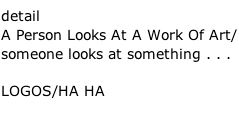David Jones, artist and poet (1895-1974) begins his PREFACE TO THE ANATHEMATA :
'I have made a heap of all that I could find.' (1) So wrote Nennius, or whoever composed the introductory matter to Historia Brittonum. He speaks of an 'inward wound' which was caused by the fear that certain things dear to him 'should be like smoke dissipated'. Further, he says, 'not trusting my own learning, which is none at all, but partly from writings and monuments of the ancient inhabitants of Britain, partly from the annals of the Romans and the chronicles of the sacred fathers, Isidore, Hieronymous, Prosper, Eusebius and from the histories of the Scots and Saxons although our enemies . . . I have lispingly put together this . . . about past transactions, that [this material] might not be trodden under foot'. (2)
(1) The actual words are coacervavi omne quod inveni, and occur in Prologue 2 to the Historia.
(2) Quoted from the translation of Prologue 1. See The Works of Gildas and Nennius, J.A.Giles, London 1841.
.The web we weaveGuy Rundle in today's
Sunday Age.
Today, we're in a similar position as the feudal world was in the decades leading up to the great revolutions of the 18th and 19th centuries. The web ostensibly makes the final separation between writing and material being. Text and images can be circulated at virtually zero cost instantaneously and universally. Old forms — the book, the film, the song — are being pulled apart by new forms using that total interconnectivity. Intellectual property, that ludicrous fiction, is effectively dead, as are many of the corporations that based their value on it...
(click here for full article)
The Word,
The Word Made Flesh
& all associated signs and brands
Registered .R.
Trademarked .TM
Copyrighted .©
-1995-






